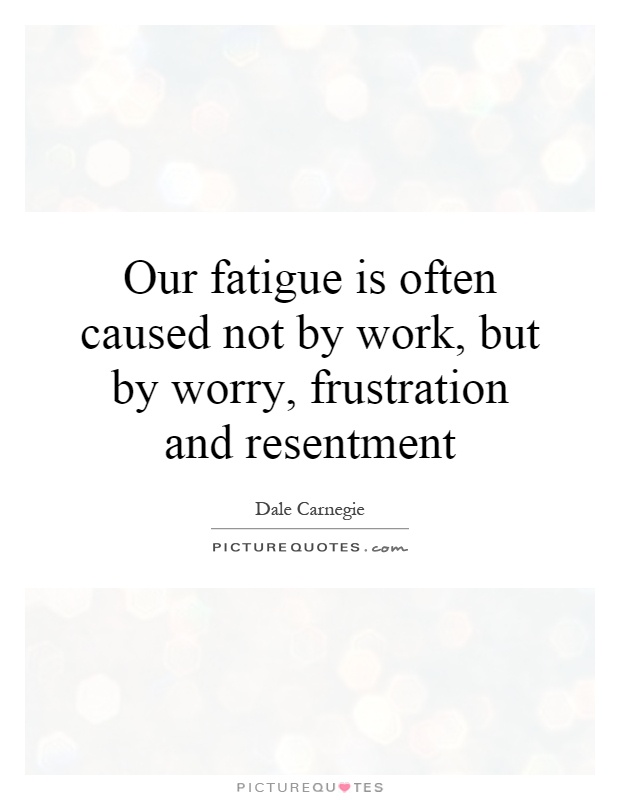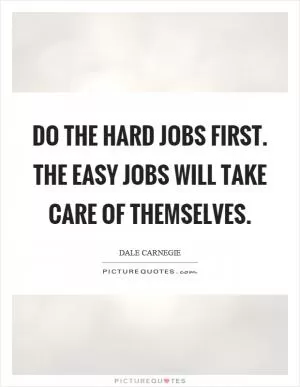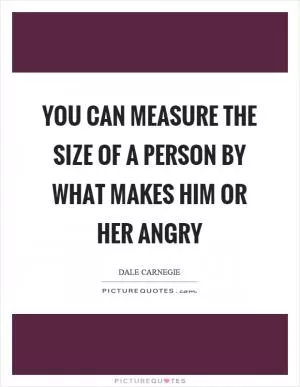Our fatigue is often caused not by work, but by worry, frustration and resentment

Our fatigue is often caused not by work, but by worry, frustration and resentment
Dale Carnegie, the renowned author and self-improvement guru, believed that our fatigue is often not caused by the physical demands of work, but rather by the mental and emotional burdens we carry. In his book "How to Stop Worrying and Start Living," Carnegie explores the detrimental effects of worry, frustration, and resentment on our overall well-being and productivity.Worry, according to Carnegie, is one of the most common sources of fatigue. When we constantly fret about the future or dwell on past mistakes, our minds become consumed with negative thoughts and scenarios. This mental preoccupation can drain our energy and leave us feeling exhausted, even if we haven't engaged in any physically demanding tasks. Carnegie emphasizes the importance of living in the present moment and focusing on what we can control, rather than worrying about things beyond our influence.
Frustration is another emotion that can contribute to fatigue. When we encounter obstacles or setbacks in our work or personal lives, it's natural to feel frustrated. However, dwelling on these negative experiences can sap our motivation and energy. Carnegie encourages his readers to adopt a more positive mindset and approach challenges with a sense of resilience and determination. By reframing our perspective and focusing on solutions rather than problems, we can avoid the mental and emotional exhaustion that comes with frustration.
Resentment is a particularly toxic emotion that can have a profound impact on our well-being. Holding onto grudges or harboring feelings of bitterness towards others can consume our thoughts and drain our energy. Carnegie advocates for forgiveness and letting go of past grievances in order to free ourselves from the burden of resentment. By practicing empathy and understanding towards others, we can cultivate a more positive and peaceful mindset that will ultimately lead to greater happiness and fulfillment.












 Friendship Quotes
Friendship Quotes Love Quotes
Love Quotes Life Quotes
Life Quotes Funny Quotes
Funny Quotes Motivational Quotes
Motivational Quotes Inspirational Quotes
Inspirational Quotes